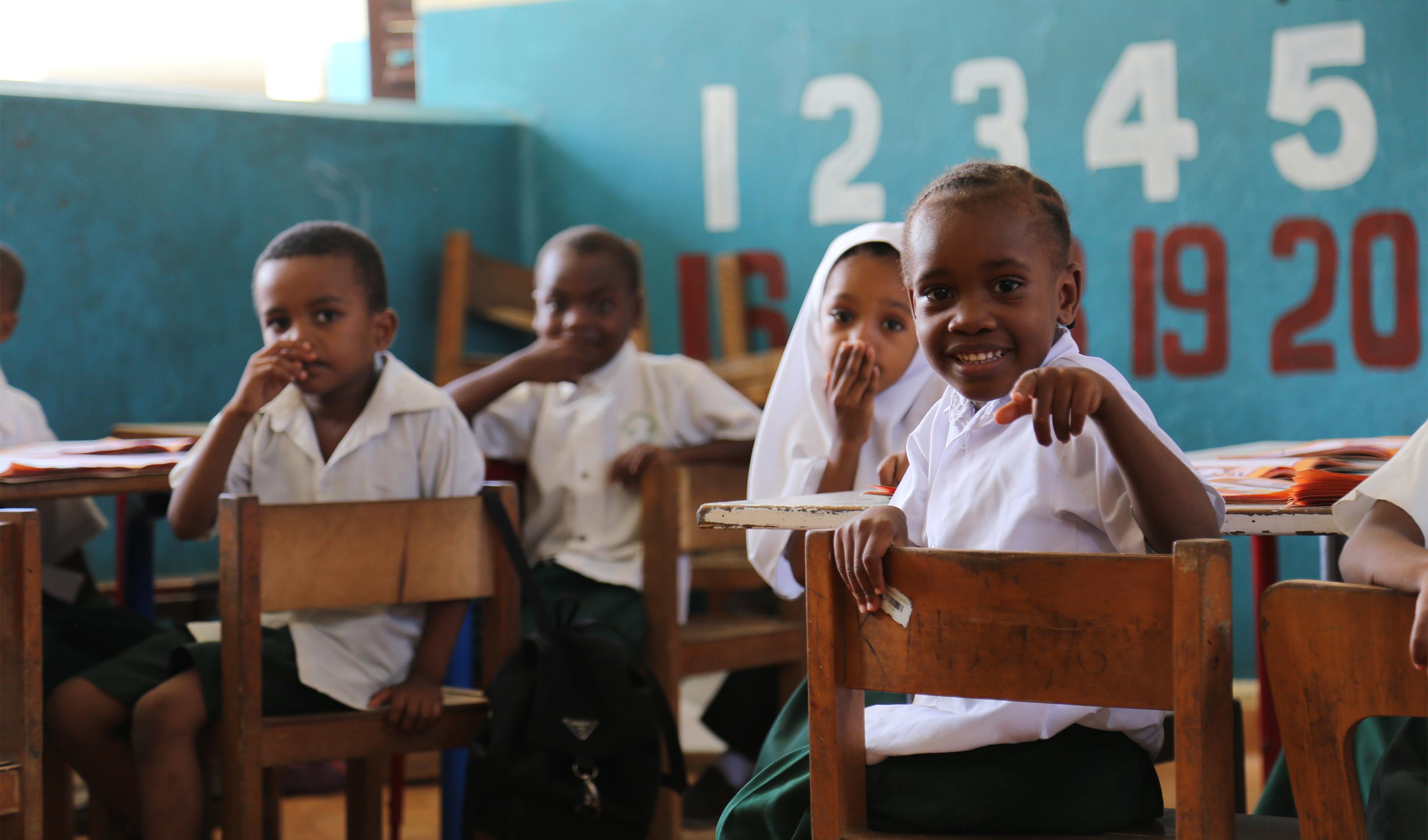

The Global Partnership for Education (GPE) is a multi-stakeholder partnership and funding platform which is building country ownership and investments in early childhood education and care through sector planning, policy dialogue and financing. Since 2003, it has provided grants totalling USD 4.7 billion to support basic education in 65 developing countries. This includes over USD 180 million to support early childhood services through implementation grants: an initial analysis of 21 active grants shows that most are being used to improve the teaching workforce, construct classrooms or provide additional learning materials, and strengthen systems.
GPE’s Strategic Plan for 2016–2020 includes a focus on young children. Two of the indicators on which it monitors progress annually align with Sustainable Development Goal 4.2. These are: ‘children under 5 years developmentallyon track in health, learning, and psychosocial wellbeing’ and ‘increased pre- primary enrollment’ (GPE, 2016: 11–12). While data are available only for 22 countries, collected between 2011 and 2014, it shows that approximately two- thirds of children aged between 3 and 5 are developmentally on track, but fewer than one-third have access to pre-primary programmes – less than a quarter in countries affected by fragility and/or conflict (GPE, 2017).
GPE’s unique country-level operating model funds the development of education sector plans (ESPs) through a process led by government with a formal mechanism to ensure accountability with other stakeholders. A recent review of 47 active ESPs shows there is scope to raise the quality of early childhood within these plans by improving country analysis and planning capacity for scaling quality programmes, with an increased focus on reaching the most vulnerable children. While nearly 90% of reviewed ESPs provide information on access and coverage, only half break this down by geography, gender or socioeconomic status. Fewer than one-fifth include data on qualifications or competences of teachers in the early childhood sector. Just under half have a multi-year action plan for early childhood; about two-thirds include specific cost projections, but only six include an analysis of past and potential external funding and only two identify funding gaps.
In a recent survey of 40 GPE partner countries, only half strongly believed that their leadership is committed and convinced that investments in early childhood should be prioritised within the education sector budget. The top two reported that bottlenecks were financing and coordination across ministries and partners. The same survey showed there is high interest in learning about other countries’ models in early childhood provision – including parental education programmes, accelerated school readiness programmes and home-based programmes – and strong demand for better data analysis and planning.
In 2018, GPE is launching two initiatives. First, the Better Early Learning and Development at Scale (BELDS) funding mechanism will support pilots in capacity development, integrating existing effective approaches, tools and models into national planning and policy implementation cycles. These pilots will inform the creation of a toolkit for other countries to learn from. Second, GPE will launch a Knowledge and Innovation Exchange, to inform both practice and policy advocacy. Both initiatives will build global knowledge and good practice in bringing quality early childhood services to scale within national education systems, particularly in developing countries.
References can be found in the PDF version of the article.
See how we use your personal data by reading our privacy statement.
This information is for research purposes and will not be added to our mailing list or used to send you unsolicited mail unless you opt-in.
See how we use your personal data by reading our privacy statement.